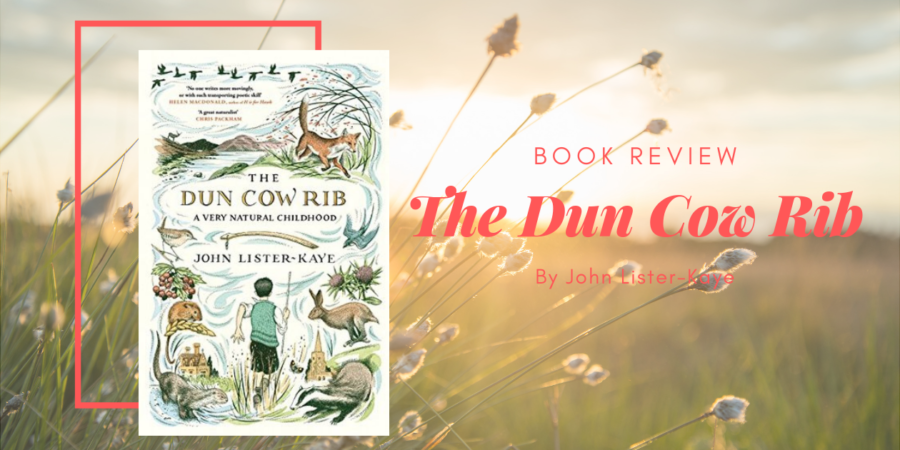I think I found this book when I was looking for books about the English countryside (which reminds me, I need to get back to the Fairacre series!) For some reason, it languished on my TBR list until last week, when I was browsing through Overdrive and realised that I wishlisted the book.
The Dun Cow Rib takes its title from a huge bone in John Lister-Kaye’s ancestral home. It’s supposedly the rib of the Dun Cow (though it is not), which is supposed to be some giant fearsome cow. Given that the title is about a mythical beast, it’s probably no surprise to hear that this book is about nature. It’s the story of Lister-Kaye’s childhood and how he came to fall in love with animals, leading to his work in conservation and the Aigas Field Center.
This is definitely a childhood experience that most people won’t have. Apart from the fact that times have changed, Lister-Kaye is also the son of a Baron, which means that his childhood is probably not similar even to most British people of his time. The ancestral home that I mentioned was huge and the attitudes of his family definitely played a part in allowing him to develop his love of nature.
To me, The Dun Cow Rib is an excellent example of the power of books. I’m never going to have the experience Lister-Kaye has and I’m probably never going to know people who had that kind of childhood either. But, by reading his autobiography, I can get a glimpse into his life and his way of thinking – it’s practically a kind of magic to be able to walk in someone’s shoes that way. While I like animals (and was a kid’s member of WWF and always eagerly waited for the inserts to learn about the latest animal), I’ve never been passionate about them like Lister-Kaye has. And it was in reading his passion and his experience that I managed to have an understanding of why people can fall in love so deeply with the natural world that they will spend their life trying to undo the damage that mankind has done.
Apart from the fantastic descriptions of the natural world, I also appreciated the glimpse into the life of upper-society Britain. His mother was a tragic figure, but her love and good heart shone through. It’s clear that despite her poor health, she never victimised or pitied herself, but instead was the emotional pillar of the family. The different schools that Lister-Kaye went to were interesting as well, since many of them were boarding schools and I have always been curious about them since reading about them in Enid Blyton.
Overall, I really enjoyed this. It’s written in a beautiful and entertaining style that brought me into the British countryside of quite a few years back. I’d definitely recommend this to people who love nature and/or biographies.

I love the cover so much! It reflects nature, obviously, and the playful illustrations also reflect childhood. // I have a greater appreciation for nature now that I live in the city; I miss big, green, open spaces so much! But I don’t think that I connect to nature on the level that Lister-Kaye does, so I’m curious about that. I also have a guilty pleasure of reading about upper-society because I’m pretty sure that reading is the only glimpse I’ll ever get of that ;P -Audrey | Book Book Chick
The cover is just so charming! And yeah, the closest I’ll get through the lives of upper-society would be through books and television :p